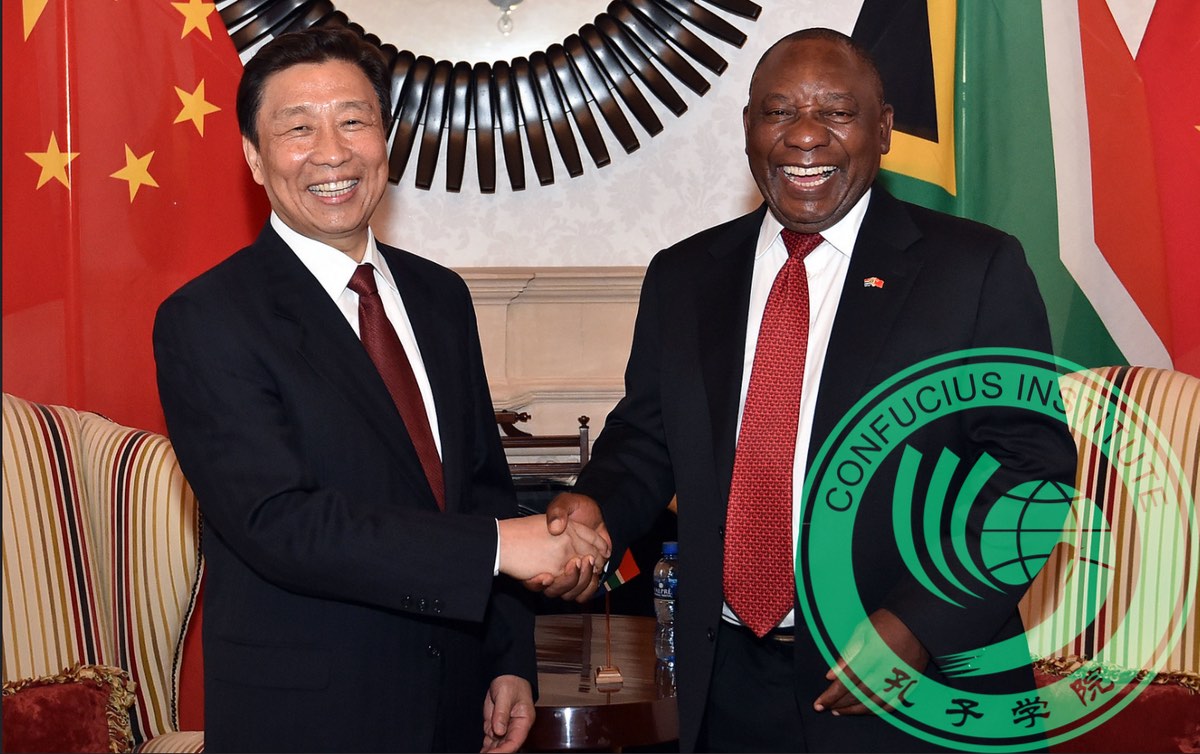In order to promote the Chinese language and culture, support local Chinese teaching internationally and facilitate cultural exchanges, the Chinese government has established ‘Confucius Institutes’.
Named after the ancient Chinese philosopher, the institutes purport to propagate Confucius’ principles that he was famous for — honesty, righteousness and morality.
The institutes were developed by China’s United Front Work Department (UFWD), an extensive propaganda machine that has been widely criticized for ensuring the institutes remain faithful to a false narrative set by the Chinese Communist Party.
The Confucius Institute Headquarters – Hanban – was founded in 2004 by former Chinese vice premier and Politburo member Liu Yandong, while she was the head of UFWD, to establish “non-profit public institutions which aim to promote Chinese language and culture in foreign countries.”
As at the beginning of 2021 there are 541 institutes and nearly 2,000 Confucius classrooms operating in 162 countries at the primary, secondary, and university levels. Hanban provides teachers, textbooks, and operating funds, but the institutes depend on matching resources from the host institutions.
Hanban reportedly spent more than $2 billion from 2008 to 2016 on Confucius Institutes worldwide. From 2017 Hanban stopped reporting spending on the Institutes.
In the United States and Australia, the operations of the Institutes have come under greater scrutiny recently. A report in 2014 by the American Association of University Professors (AAUP) urged colleges to either negotiate their relationships to ensure academic freedom or shut them down.
Another report in 2017 by the National Association of Scholars revealed how the Chinese government infiltrates American colleges and universities to enhance its image.
In 2019 FBI director Christopher Wray testified to the U.S. Congress that the Institutes “offer a platform to disseminate Chinese government or Chinese Communist Party propaganda, to encourage censorship, to restrict academic freedom.” This criticism has led to the closure of 27 percent of the institutes in the United States since 2017, but 75 Confucius Institutes remain on campuses and some 500 Confucius classrooms in K-12 (grade 1 to 12) schools.
Such concerns have led to the closure of Institutes also in Australia, Belgium, Canada, Denmark, France, Germany, the Netherlands, and Sweden. Otherwise, these countries have required greater restrictions and scrutiny over those institutes which are allowed to continue operations.
Accusations against the institutes range from interfering in the recruitment of teachers, determining curriculum, organising protests, and choosing texts that distort history – especially related to the three T’s of Taiwan, Tiananmen and Tibet. The Institutes also put pressure on universities to cancel conferences on Taiwan and visits by the Dalai Lama. The Institutes have also been accused of monitoring and threatening Chinese studying abroad who stray from Beijing’s narrative.
There is nothing inherently wrong with the idea of a government-sponsored cultural institute: examples are Alliance Francaise, American Centers, the British Council, the Goethe Institute and Dante Alighieri. The problem comes in when an institute censors information or distorts history for geopolitical gain.
Using the 2002 edition of QS World Rankings of the top 100 universities (of 1,300 ranked), just under half of the top 100 universities in the world are located in the US or the United Kingdom (with 26 and 18 Institutes respectively).
Institutes are situated at universities which are elite, to community colleges. The Top 100 universities which have Institutes in the USA and the UK are: MIT, Oxford, Stanford, Cambridge, University College London, Chicago, Nanyang Technological University, Singapore, Edinburgh, Columbia, Hong Kong, Michigan – Ann Arbour, Manchester, Melbourne, Sydney, New South Wales, Queensland, Technical University of Munich, Ruprecht-Karls-Universitat Heidelberg, Universidad de Buenos Aires, Glasgow, Osaka, Southampton, Lomonosov Moscow State University, Yonsei (Sth Korea), Illinois at Urbana-Champaign, Auckland, Washington, Leeds, Western Australia, Sheffield and Pennsylvania and University of Sheffield.
The 20 July 2021 edition of The Spectator‘s lead story was ‘Fellow travellers: Cambridge has been compromised by China.’ To summarise: While the shine has come off the West’s relationship with China, vice-chancellor Stephen Toope continues to pursue China’s money. Thus, Cambridge is the most compromised of the UK universities targeted by China. ‘The Cambridge Institute for Sustainability Leadership’ is being developed by Lei Zhang, a Chinese billionaire, who is providing half of the BP12,9 million. Lei is also a member of the National People’s Political Consultative Conference (NPC). The NPC endorsed the neutering of Hong Kong’s electoral system.
It has received a gift from Tencent, which is closely linked to the Chinese Communist Party (CCP). Its WeChat and Weixin apps are a key component of the surveillance state.
The Chong Hua Professor chair was sponsored by the Chong Hua Foundation which purported to be private with no links to the Chinese government. It turned out that that the foundation was run by Wen Ruchun, daughter of former prime minister Wen Jiabao.
In November Professor Peter Nolan cautioned subtends against discussing China’s human rights abuses as not being ‘helpful in advancing mutual understanding’. The Spectator concludes that the Cambridge-China relationship has been ‘been characterised by astonishing greed and naïveté.
According to a former colleague of the author’s who studied at one of the six Institutes in South Africa, the teaching of Mandarin and Chinese culture to students was genuine and thorough. However, he also praised the conversations he had with teachers outside of class. One should be circumspect, however, given the threats that the Chinese government makes against Chinese teachers and students who have to report regularly back to Beijing otherwise they or their families are threatened.
While the major universities may be the target of technological and scientific know-how, lesser universities can be targets for positive attitudes towards China.

